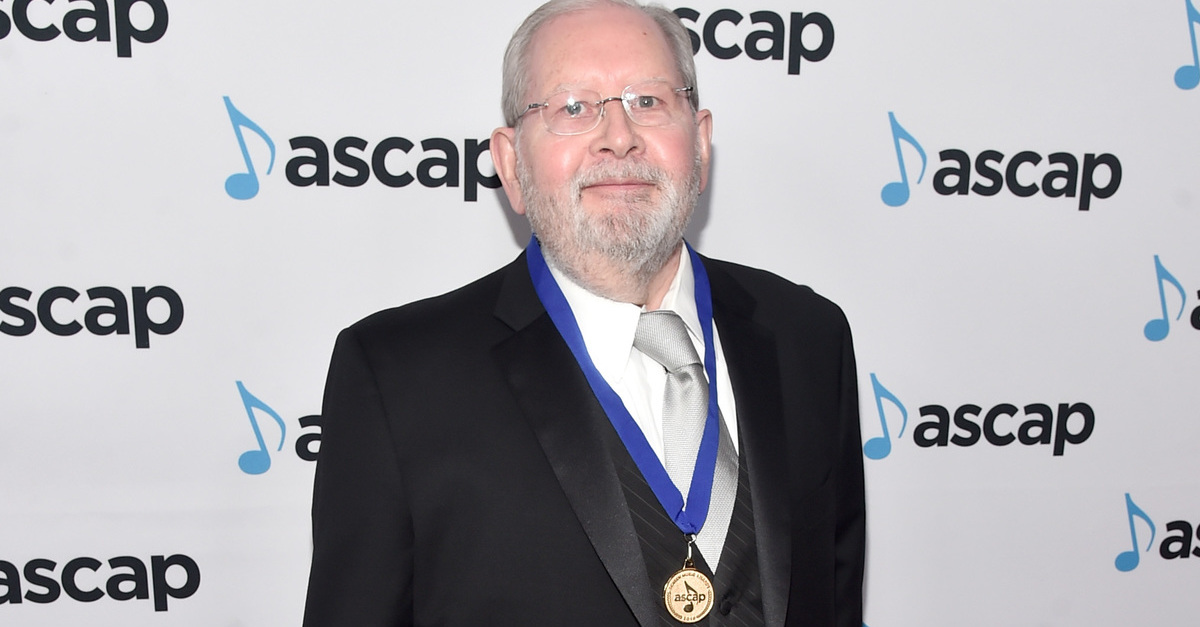
Composer Alf Clausen attends the 2016 ASCAP Screen Music Awards at The Beverly Hilton Hotel on March 24, 2016 in Beverly Hills, California.
Hollywood music legend Alf Clausen has settled his 2019 lawsuit against Twentieth Century Fox (“Fox”) over being fired from his position as composer on The Simpsons. After nearly three years of battling over Clausen’s ability to write rap music and Fox’s decision to fire the award-winning composer after decades of work, the parties have agreed to dismiss the lawsuit. The terms of the parties’ settlement have not been made public.
Clausen, age 80, won two Emmys and became the most nominated composer in Emmy history with 23 nominations, for his nearly three decades of work on the hit animated show. When Clausen began his work on The Simpsons in 1990, he was already a giant in the field, having composed the music for The Donny & Marie Show, The Mary Tyler Moore Hour, Fame, Little House on the Prairie, Moonlighting, and many other hit shows and movies.
In 2017, Fox produced an episode called “The Great Phatsby,” a parody of the Fox show Empire; the show featured significant amounts of hip-hop and rap music, and producers were ultimately unhappy with Clausen’s work. Fox fired Clausen in 2017, and Clausen sued, claiming wrongful termination, intentional infliction of emotional distress, and discrimination based on age and disability (Clausen has Parkinson’s disease).
Fox denied wrongdoing, and said it fired Clausen because he had become deficient as a composer, and was improperly delegating his composition work to his team. The studio specifically pointed to Clausen’s inability to compose synth and rap music in the manner required for the show, leading to Clausen’s replacement by movie music giant 62-year-old Hans Zimmer (the composer behind films such as the Pirates of the Caribbean series, Interstellar, Gladiator, Crimson Tide, Inception, Dunkirk, and The Dark Knight Trilogy).
From the court documents, the legal battle between Clausen and Fox was clearly a heated one. Clausen argued that Fox’s position was based entirely on “demonstrable lies,” and called any suggestion that he was unable to adequately compose rap or electronic music “ageist” and “discriminatory.”
Los Angeles County Judge Michael L. Stern ruled in Clausen’s favor during early stages of the proceedings, allowing his claims to go forward. Fox appealed. At oral arguments, the appellate court appeared unconvinced by Clausen’s arguments, even suggesting that the parties agree to drop the litigation, each shouldering its own legal costs.
Shortly thereafter, the parties agreed to settle the case. Clausen’s attorney, Ebby Bakhtiar, told press, “We caught a very, very conservative panel,” and commented about Clausen, “I think he got screwed.”
Attorneys for the parties did not immediately respond to Law&Crime’s request for comment.
[image via Alberto E. Rodriguez/Getty Images for ASCAP]
Have a tip we should know? [email protected]